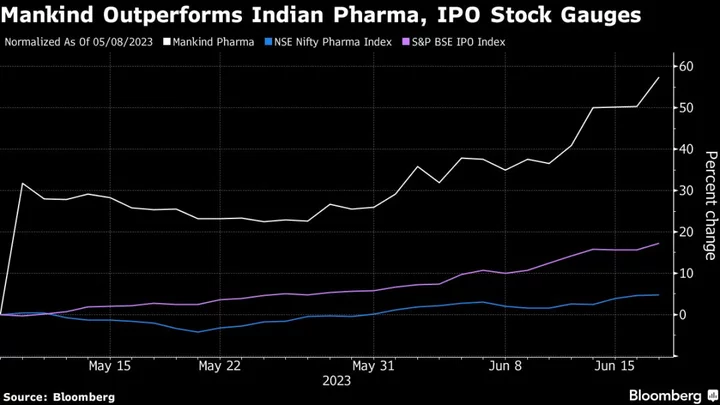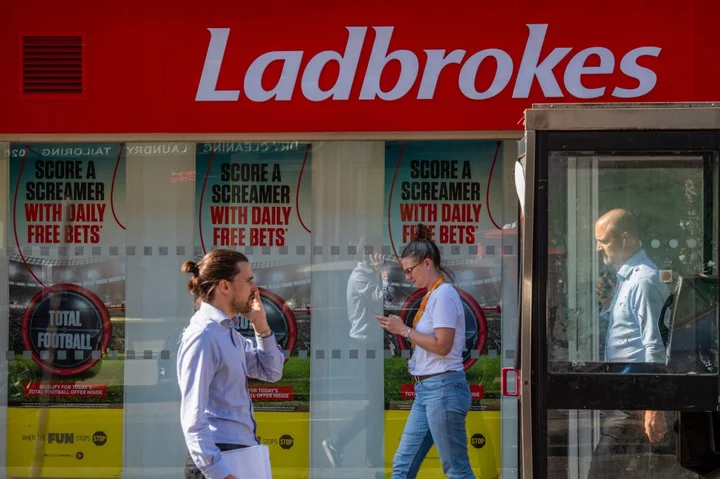The turmoil gripping real estate issuers has serious implications for Europe’s €1.7 trillion ($1.8 trillion) market for ESG bonds.
Real estate has quietly morphed into a huge force in Europe’s ESG debt market, and that’s left debt investors targeting environmental, social and good governance goals particularly vulnerable to higher interest rates and sudden droughts in issuance, according to Bernhard Birkhaeuser, a portfolio manager specializing in corporate bonds at DWS Group, the fund unit of Deutsche Bank AG.
Birkhaeuser estimates that real estate accounted for almost a third of Europe’s green bond issuance in 2022, but has shriveled to almost nothing this year as the sector buckles under the weight of rising borrowing costs.
“It’s still tough,” he said in an interview. “New construction is on hold” and “the market is very much slowing down.”
Green Bonds Are the Real Estate Industry’s Main ESG Debt Type
The trouble gripping real estate issuers has played out in dramatic style in some markets, with Sweden’s property sector delivering a body blow to the country’s pension investors. In Germany, Europe’s largest economy, a number of high-profile property developments have gone bust after failing to keep up with interest payments.
An analysis by Bloomberg Intelligence indicates that some issuers are consolidating as the industry faces high rates for potentially several years to come, putting a damper on sales of both green and conventional bonds.
Birkhaeuser said his analysis is based on euro-denominated, investment-grade corporate non-financial green bonds. But the same trend can also be observed in other ESG debt classes, he said.
“There are a lot of real estate issuers that have problems right now,” Birkhaeuser said. “There’s on the one hand less possibility to refinance, and on the other hand, less need to refinance new projects.”
A recent analysis by the European Securities and Markets Authority found that sales of corporate bonds with ESG labels fell 26% in the first half of 2023 from a year earlier. Birkhaeuser said that slump is almost certainly due to the disappearance of real estate issuance in the period.
The first-half decline in ESG corporate bond sales contrasts with the rest of the market, with overall corporate sales rising 50%, according to ESMA. Public sector issuance volumes climbed 22% in the six-month period, led by green bonds, it said.
The slowdown in the ESG bond market continued in the third quarter as governments stepped out, according to Commerzbank Research, with analyst Stephan Kippe saying it will take a “significant” drop in volatility for the market to recover.
For ESG issuers that are still able to come to market, demand remains strong, Birkhaeuser said.
“Demand is absolutely there and you clearly see it when there is new issuance,” he said.
He also said it’s difficult to consistently assess whether European ESG issuers are still receiving a greenium, which is the term given to the more favorable terms that companies selling green bonds sometimes expect to get.
And Birkhaeuser said he’s seen no indication that issuers complying with Europe’s newly approved Green Bond Standard “will get any additional benefit.”
“There is no incentive for the issuers to switch” their issuance to fit with the new standards, he said. “There is a well-functioning market, so there is no urgent need to establish such thing.”
--With assistance from Greg Ritchie.









